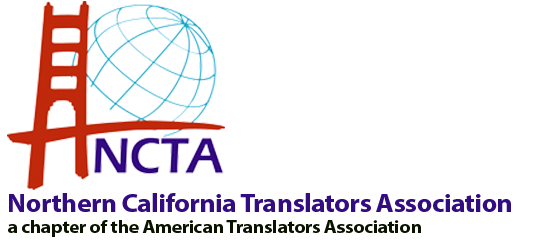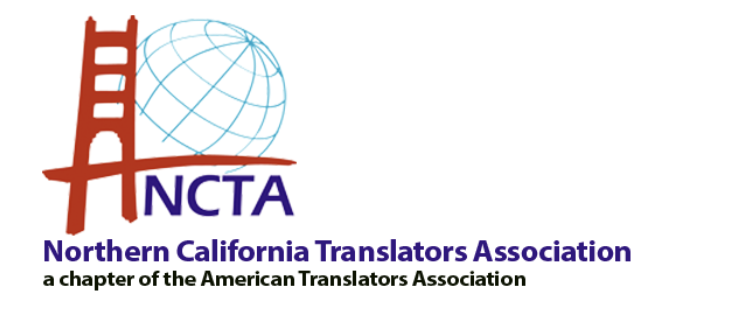1K
Below, we are collecting some resources for translators and interpreters that we hope are useful during the current Covid-19 crisis.
Last update: May 1, 2020
If you know of a resource that is not listed, please email the NCTA Webmaster.
Financial Resources
- Both the California Franchise Tax Board as well as the federal IRS have extended the tax payment deadlines for 2020 for the 2019 tax return, estimated and corporate taxes. The new IRS federal tax due dates can be found here.
- The new California tax due dates can be found here.
- Legislators passed the CARES Act to bolster the economy during the crisis. Here is a summary of what the Act means for freelancers.
- A guide to Pandemic Unemployment Assistance (PUA) and the Paycheck Protection Program (PPP) for freelance T&I professionals, by Robin Bonthrone (you need to be logged in as NCTA member to access the file)
- ATA President Ted Wozniak provided a summary of the CARES Act for ATA members (likely applicable to NCTA members who are not ATA members, too).
- The Napa-Sonoma Small Business Development Center has published a guide to the CARES Act for small business owners.
- Covered California opened up a special enrollment period due to the coronavirus. You can find more information here.
- The Joint National Committee for Languages has published a page with COVID-19 relief information for small businesses and independent contractors.
Free Continuing Education Resources
- The Internet Archive launched a “national emergency library” with free digital books that support emergency remote teaching, research activities, independent scholarship, and intellectual stimulation while universities, schools, training centers, and libraries are closed. More information here.
- ATA members can now watch the entire 2017 ATA Conference, ATA58, for free. You need to be an active ATA member and log into the ATA website.
- Free presentation series on neural networks and translation by Prof. Andy Way — https://www.youtube.com/playlist?list=PLTRMtN7cm-q3NDuYGL1vLuzdjXq5mBmwK
- Interpreter Education Online is offering several of their webinars for free.
- Interpreting Covid-19 by Linda Golley, on demand. To register, please send a request to Services@InterpreterEducationOnline.com
- Free access to the course Working as a VRI Interpreter with purchase of any other course on the website.
Free Miscellaneous Linguistic Resources
- DIN is offering relevant DIN standards for PPE and medical equipment for FREE in English and German. Read more here in German and here English.
- ASTM is offering relevant standards for PPE and medical equipment for FREE as well. More information here.
- TAUS created a Coronavirus corpus in various language pairs to train MT engines, the corpora can be downloaded here for free. Currently available in the language pairs English-French, English-German, English-Italian, and English-Spanish.
- InterpretAmerica 2020 Recording: A unified response to ensure access to interpreting services during the pandemic
Scam Alert – How to tell if an inquiry is a scam
The scammers are getting desperate as well. Reports of scams targeting language professionals have increased recently.
- Is it too good to be true?
It is a scam, trash it.
If somebody you don’t know wants to pay twice your usual rate without haggling and it’s not something super-urgent, super-specialized that they need immediately (rush rate!), it IS too good to be true. The entire global economy is struggling, so nobody wants to pay more than absolutely necessary right now. - Is it a “job offer,” i.e. offering full-time or part-time employment and you are located in CA?
Unless it’s for a very specialized job that is urgently needed in light of Covid-19, such as medical interpreters or delivery truck drivers, it’s a scam, trash it.
The entire world is by now aware of AB5, so people are wary to hire employees in California and possibly trigger an audit by the CA EDD. Given that most factories that don’t produce medical equipment or other much needed items are closed world-wide, it is highly unlikely that anybody is hiring now. - Did you receive an email? Does the from address match the reply-to address in URL and is the URL a reputable known URL?
If the reply-to is a free gmail, hotmail or other free email addres, it’s a scam, toss it.
If the reply-to has the same URL after the @ sign including the .com, .de, .us etc., it may just be directly routed to a person working from home. I.e. the email is from hr @ company.com, but the reply-to reads John.Doe @ company.com, it is probably legit, unless the company.com server has been hacked. To check an URL, i.e. how long it has been registered etc., go to https://lookup.icann.org and type in the URL. Thanks to data privacy laws, you won’t see the actual registrar information anymore, but it’ll tell you how long the URL has been registered. Scammers sometimes set up new URLs for scam purposes. So if the URL is relatively new, while that’s not an indicator of a scam in and of itself, be alert. - Did you receive a phone call? Does the phone number match the phone number given on the company website?
Ask if you can call them back at the number given on their website. If they say no, it’s a scam.
It’s super-easy to spoof (imitate/impersonate) a “from” email address. It’s also super-easy to spoof a phone number. I once received a phone call from my own phone number and I know I didn’t call myself – duh! Always hang up, verify the phone number on the company website and call back. Or email back. Some companies may have forgotten to set a forwarding for their business phones to people’s personal phones before the shelter-in-place lockdowns, but everybody should have access to their company email address at home. - Does the person refer to their Facebook or LinkedIn or Xing profile as verification?
Check whether that profile and the given contact information matches the contact information on the company website that you verified already (see step 3). If it doesn’t match, it’s a scam.
It is super-easy to set up fake profiles on LinkedIn and claim to be an employee of another company. Even if that company is aware of the false employment claim, it takes a long while for LinkedIn to react. - Do they invite you to an “interview” on Google Hangouts?
It most likely is a scam.
The scammers try to extract personally identifying information via this interview for the purposes of identity theft. While some reputable businesses indeed use video interviews for hiring and contracting purposes, they almost always use a more secure platform (Zoom, GotoWebinar, etc.).
For more information on scams, see our resources here.



